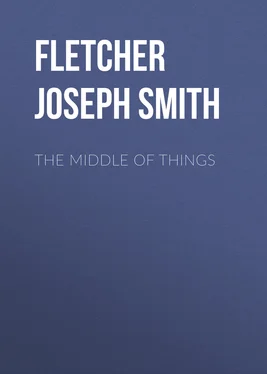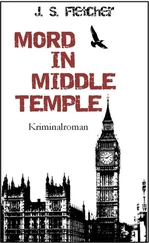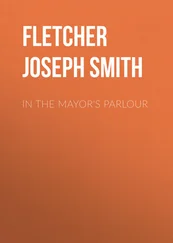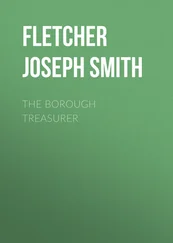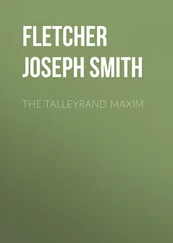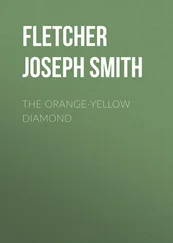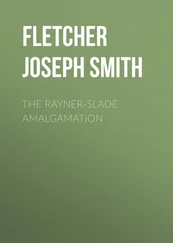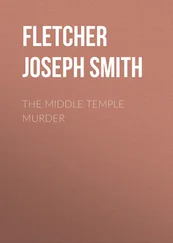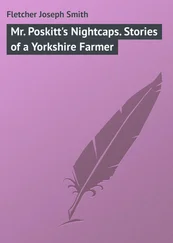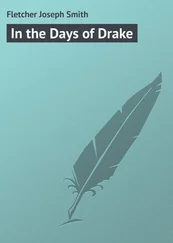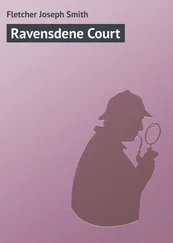Joseph Fletcher - The Middle of Things
Здесь есть возможность читать онлайн «Joseph Fletcher - The Middle of Things» — ознакомительный отрывок электронной книги совершенно бесплатно, а после прочтения отрывка купить полную версию. В некоторых случаях можно слушать аудио, скачать через торрент в формате fb2 и присутствует краткое содержание. Жанр: foreign_prose, Классический детектив, foreign_detective, foreign_antique, на английском языке. Описание произведения, (предисловие) а так же отзывы посетителей доступны на портале библиотеки ЛибКат.
- Название:The Middle of Things
- Автор:
- Жанр:
- Год:неизвестен
- ISBN:нет данных
- Рейтинг книги:4 / 5. Голосов: 1
-
Избранное:Добавить в избранное
- Отзывы:
-
Ваша оценка:
- 80
- 1
- 2
- 3
- 4
- 5
The Middle of Things: краткое содержание, описание и аннотация
Предлагаем к чтению аннотацию, описание, краткое содержание или предисловие (зависит от того, что написал сам автор книги «The Middle of Things»). Если вы не нашли необходимую информацию о книге — напишите в комментариях, мы постараемся отыскать её.
The Middle of Things — читать онлайн ознакомительный отрывок
Ниже представлен текст книги, разбитый по страницам. Система сохранения места последней прочитанной страницы, позволяет с удобством читать онлайн бесплатно книгу «The Middle of Things», без необходимости каждый раз заново искать на чём Вы остановились. Поставьте закладку, и сможете в любой момент перейти на страницу, на которой закончили чтение.
Интервал:
Закладка:
"All you can tell?" exclaimed Mr. Pawle.
"All! But we can see plenty in it," said Fosdick. "Our notion is that Ashton was murdered by somebody who didn't want that secret to come out. Now, you see if events don't prove we're right."
"Gentlemen," said Mr. Pawle, "allow me to ask you a few questions."
"Many as you please, sir," assented Fosdick. "We'll answer anything."
"He didn't tell you what the secret was?" asked Mr. Pawle.
"No. He said we'd know more about it in time," replied Fosdick. "It would possibly lead to legal proceedings, he said—in that case, it would be one of the most celebrated cases ever known."
"And romantic," added Stephens, speaking for the first time. "Romantic!
That was the term he used."
"And romantic—quite so," assented Fosdick. "Celebrated and romantic—those were the words. But in any case, he said, whether it got to law matters or not, it couldn't fail to be in the papers, and we should read all about it in due time."
"And you know no more than that?" inquired Mr. Pawle.
"Nothing!" said Fosdick with decision.
Mr. Pawle looked at Viner as if to seek some inspiration. And Viner took up the work of examination.
"Do you know anything of Mr. Ashton's movements since he came to London?" he asked.
"Next to nothing," replied Fosdick. "Ashton left the Maraquibo at Naples, and came overland—he wanted to put in a day or two in Rome and a day or two in Paris. We came round by sea to Tilbury. Then Stephens and I separated—he went to see his people in Scotland, and I went to mine in Lancashire. We met—Stephens and I—in London here last week. And we saw Ashton for just a few minutes, down in the City."
"Ah!" exclaimed Mr. Pawle. "You have seen him, then! Did anything happen?"
"You mean relating to what he'd told us ?" said Fosdick. "Well, no more than I asked him sort of jokingly, how the secret was. And he said it was just about to come out, and we must watch the papers."
"There was a remark he made," observed Stephens. "He said it would be of just as much interest, perhaps of far more, to our Colonial papers as to the English."
"Yes—he said that," agreed Fosdick. "He knew, you see, that we were just about setting off home."
"He didn't ask you to his house?" inquired Mr. Pawle.
"That was mentioned, but we couldn't fix dates," replied Fosdick. "However, we told him we were both coming over again on business, next year, and we'd come and see him then."
Mr. Pawle spread out his hands with a gesture of helplessness.
"We're as wise as ever," he exclaimed.
"No," said Fosdick emphatically, "wiser! The man had a secret, affecting powerful interests. Many a man's been put away for having a secret."
Mr. Pawle put his finger-tips together and looked thoughtfully at his elder visitor.
"Well, there's a good deal in that," he said at last. "Now, while you're here, perhaps you can tell me something else about Ashton. How long have you known him?"
"Ever since we were lads," answered Fosdick readily. "He was a grown man, then, though. Stephens and I are about forty—Ashton was sixty."
"You've always known of him as a townsman of Melbourne?"
"That's so. We were taken out there when we were about ten or twelve—Ashton lived near where we settled down. He was a speculator in property—made his money in buying and selling lots."
"Was he well known?"
"Everybody knew Ashton."
"Did you ever know of his having a friend named Wickham?" inquired Mr.
Pawle with a side-glance at Viner. "Think carefully, now!"
But Fosdick shook his head, and Stephens shook his.
"Never heard the name," said Fosdick.
"Did you ever hear Ashton mention the name!" asked Mr. Pawle.
"Never!"
"Never heard him mention it on board ship—when he was coming home?"
"No—never!"
"Well," said Mr. Pawle, "I happen to know that Ashton, some years ago, had a very particular friend named Wickham, out in Australia."
A sudden light came into Fosdick's keen grey-blue eyes.
"Ah," he said. "I can tell how that may be. A good many years ago, when we were just familiar enough with Melbourne to know certain people in it, I remember that Ashton was away up country for some time—as that cablegram says. Most likely he knew this Wickham then. Is that the Wickham mentioned there?"
"It is," assented Mr. Pawle, "and I want to know who he was."
"Glad to set any inquiries going for you when we get back," said Fosdick.
"We sail in two days."
"Gentlemen," answered Mr. Pawle gravely, "it takes, I believe, five or six weeks to reach Australia. By the time you get there, this unfortunate fellow Hyde, who's charged with the murder of Ashton, on evidence that is quite sufficient to satisfy an average British jury, will probably have been tried, convicted and hanged. No! I'm afraid we must act at once if we're to help him, as Mr. Viner here is very anxious to do. And there's something you can do. The coroner's inquest is to be held tomorrow. Go there and volunteer the evidence you've just told us! It mayn't do a scrap of good—but it will introduce an element of doubt into the case against Hyde, and that will benefit him."
"Tomorrow?" said Fosdick. "We'll do it. Give us the time and place. We'll be there, Mr. Pawle. I see your point, sir—to introduce the idea that there's more to this than the police think."
When the two callers had gone, Mr. Pawle turned to Viner.
"Now, my friend," he said, "you've already sent your own solicitor to Hyde, haven't you? Who is he, by the by?"
"Felpham, of Chancery Lane," replied Viner.
"Excellent man! Now," said Mr. Pawle, "you go to Felpham and tell him what these two Australians have just told us, and say that in my opinion it will be well worth while, in his client's interest, to develop their evidence for all it's worth. That theory of Fosdick's may have a great deal in it. And another thing—Felpham must insist on Hyde being present at the inquest tomorrow and giving evidence. That, I say, must be done! Hyde must make his story public as soon as possible. He must be brought to the inquest. He'll be warned by the coroner, of course, that he's not bound to give any evidence at all, but he must go into the box and tell, on oath, all that he told you and Drillford. Now be off to Felpham and insist on all this being done."
Viner went away to Chancery Lane more puzzled than ever. What was this secret affecting one of the first families in England, of which Ashton had told his two Melbourne friends? How was it, if legal proceedings were likely to arise out of it, that Ashton had not told Pawle about it? Was it possible that he had gone to some other solicitor? If so, why didn't he come forward? And what, too, was this mystery about Miss Wickham and her father? Why, as Pawle had remarked, were there no papers or documents, concerning her to be found anywhere? Had she anything to do with the secret? It seemed to him that the confusion was becoming more confounded. But the first thing to do was to save Hyde. And he was relieved to see that Felpham jumped at Pawle's suggestion.
"Good!" said Felpham. "Of course, I'll have Hyde brought up at the inquest, and he shall tell his story. And we'll save these Australian chaps until Hyde's been in the box. I do wish Hyde himself could tell us more about that man whom he saw leaving the passage. Of course, that man is the actual murderer."
"You think that?" asked Viner.
"Don't doubt it for one moment—and a cool, calculating hand, too!" declared Felpham. "A man who knew what he was doing. How long do you suppose it would take to strike the life out of a man and to snatch a few valuables from his clothing? Pooh! to a hand such as this evidently was, a minute. Then, he walks calmly away. And—who is he? But—we're not doing badly."
Читать дальшеИнтервал:
Закладка:
Похожие книги на «The Middle of Things»
Представляем Вашему вниманию похожие книги на «The Middle of Things» списком для выбора. Мы отобрали схожую по названию и смыслу литературу в надежде предоставить читателям больше вариантов отыскать новые, интересные, ещё непрочитанные произведения.
Обсуждение, отзывы о книге «The Middle of Things» и просто собственные мнения читателей. Оставьте ваши комментарии, напишите, что Вы думаете о произведении, его смысле или главных героях. Укажите что конкретно понравилось, а что нет, и почему Вы так считаете.
